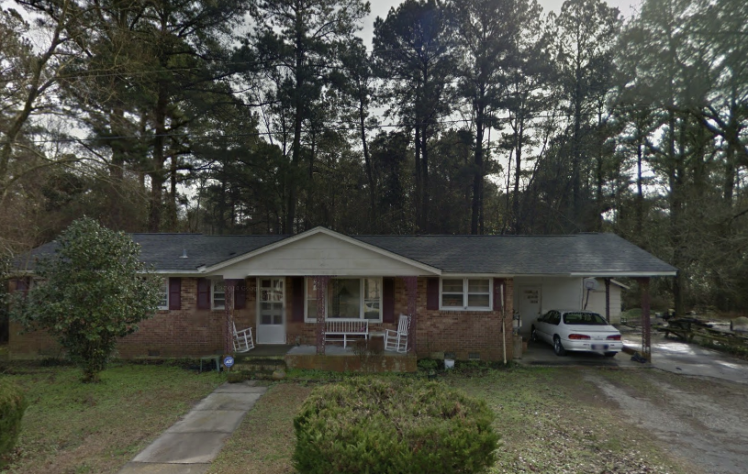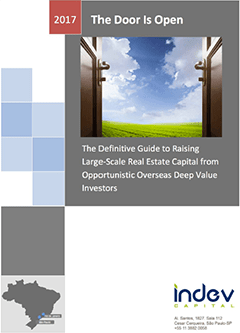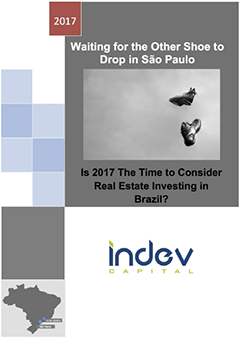 Image: Teachey, North Carolina. My Late Grandmother’s House – Lots of Common Sense was taught here. My uncle still lives there.
Image: Teachey, North Carolina. My Late Grandmother’s House – Lots of Common Sense was taught here. My uncle still lives there.
One of my earliest memories is going to church with all of my first cousins sitting together in chairs on the back of a pickup truck like the one below. While I grew up in the Raleigh / Durham area of North Carolina, my grandmother and a large portion of my family is from a small town called Teachey, NC, population 510 in the last census. Unlike today, there were no iPads or video games for us children. Instead, there were picking blueberries (nothing like a fresh blueberry), catching fireflies, and I will not discuss what happened with firecrackers and frogs.
 Image: The truck, admittedly, was not quite as low as this one but the same vintage and same country roads.
Image: The truck, admittedly, was not quite as low as this one but the same vintage and same country roads.
In my opinion, the best benefit of small towns like Teachey, NC is the timeless wisdom of older residents. For example, my uncle did and still does love cars. At one point, he was going to transform an older car into a much nicer car with various investments. My grandmother told him, “You cannot make a Silk Purse from a Pig’s Ear.” I was quite young when I heard that. As there was a small family farm with actual live pigs, distinctly un-silky animals, it struck me as the funniest comment that made no sense to a five year old. Until I moved to São Paulo, Brazil I had never thought about that comment. However, over the past two years, sometimes very successful, urbane, and highly powerful people spend their time trying to do exactly that: sell a Pig’s Ear as a Silk Purse. Why?
 The Purpose of This Newsletter
The Purpose of This Newsletter
This newsletter will cover a unique aspect and a recent challenge of emerging market real estate investing. We will refer to this challenge as the “Pig’s Ear to Silk Purse Disorder” or “PESPD.” The Pig’s Ear to Silk Purse Disorder has a dramatic effect on seller behavior and similarly has an impact on investors that are interested in deep value opportunities at this time in the cycle. This newsletter will review the influencers and the ecosystem that cause the disorder to believe that a Pig’s Ear is a Silk Purse. We will also discuss market changes that are producing a cure for this dreadful disorder. Finally, we will provide methods for investors to take action to purchase assets from those recent and soon-to-be cures of this dreaded disorder. Let’s get started…. How did this disorder start?
This newsletter will cover a unique aspect and a recent challenge of emerging market real estate investing. We will refer to this challenge as the “Pig’s Ear to Silk Purse Disorder” or “PESPD.” The Pig’s Ear to Silk Purse Disorder has a dramatic effect on seller behavior and similarly has an impact on investors that are interested in deep value opportunities at this time in the cycle. This newsletter will review the influencers and the ecosystem that cause the disorder to believe that a Pig’s Ear is a Silk Purse. We will also discuss market changes that are producing a cure for this dreadful disorder. Finally, we will provide methods for investors to take action to purchase assets from those recent and soon-to-be cures of this dreaded disorder. Let’s get started…. How did this disorder start?
São Paulo, Brazil is not Teachey, NC

Among São Paulo’s elite, a “fazenda” or farm is not a place with pigs or chickens. There are no fresh eggs. A “fazenda” is often a luxurious estate. In fact, one that I visited had a stable of horses, probably the nicest pool I have ever seen, and a marble driveway. It was simply stunning and I was shocked. Perhaps this is why there is a disconnect regarding what exactly a Pig’s Ear is.
Diagnosis “Pig’s Ear to Silk Purse Disorder”
 Pig’s Ear Case Study #1
Pig’s Ear Case Study #1
Real estate operating company owner has a need for cash. The operating company is highly levered, has some potential legal liabilities (sometimes tied to corruption) and the company is trying to raise capital. Brazilian investment banker shows up in a high-quality suit (even in the hottest and most humid of temperatures, Brazilian investment bankers never sweat) and says the following, “XYZ owner, I totally understand your situation. I have heard that you are looking for an equity investor to take a minority position at the entity level. Our firm, ABC prestigious investment bank, believes in your strategy and we will find an investor to fit your needs.”
Rural NC translation: “Pay me a retainer and I will work hard to find a fool for you to share these liabilities and problems with.”
Pig’s Ear Case Study #2
Real estate operating company owner has a need for cash. The operating company is highly levered, has some potential legal liabilities (often tied to corruption) and the company is trying to raise capital. A potential Brazilian buyer shows up. The buyer respects the company’s family. The family is one of the richest in Brazil, or at least at its peak had this title. The company owner, over many coffees, says “I would like to sell assets X, Y, and Z to you at the price you requested. However, I want the option to buy them back for a price that gives a good return to you and at a price that makes sense relative to the market.”
Rural NC translation: “Limit my downside with your hard cold cash and I want to cap your upside if things go well. Thanks a lot, by the way.”
Pig’s Ear Case Study #3
Real estate operating company owner has a need for cash. The operating company is highly levered, has some potential legal liabilities (sometimes tied to corruption) and the company is trying to raise capital. A potential foreign buyer shows up. The buyer is a USD investor and the seller knows this. The seller shows how the price he is asking for in USD is a huge discount to what the price would have been in 2012. He ignores the cap rate in local currency or price per square meter and his urgency for a buyer in a market with limited buyers for large assets.
Rural NC translation: “Just pretend that you are buying an asset in midtown Manhattan that is half the price it was five years ago. Doesn’t that feel good?”
Why Does This Happen?
The Last Real Estate Cycle
 Brazil’s capital markets and buyer behavior can be very “emotive” at certain points in the real estate cycle. This is not always bad for investors and, in fact, this can very much be used to your advantage currently. At certain times in the cycle, public markets will often value investment opportunities at levels that may not appear rational. For example, as Brazil’s interest rates have decreased, there has been a slight resurgence in the REIT IPO market. A recent REIT IPO included some assets that are over 20 years old and may have a lower-than-average tenant renewal probability without significant investment. However, this REIT trades at a very attractive cap rate relative to private comparables. In addition, during the last cycle, the REIT market had IPO listings of for-sale development residential properties with no income. A vehicle that was created largely for income-producing investments is selling to investors as a vehicle with zero income, no income post development, and all returns being based on 100% exit of residential properties. Did I say the market was emotional way south of the border?
Brazil’s capital markets and buyer behavior can be very “emotive” at certain points in the real estate cycle. This is not always bad for investors and, in fact, this can very much be used to your advantage currently. At certain times in the cycle, public markets will often value investment opportunities at levels that may not appear rational. For example, as Brazil’s interest rates have decreased, there has been a slight resurgence in the REIT IPO market. A recent REIT IPO included some assets that are over 20 years old and may have a lower-than-average tenant renewal probability without significant investment. However, this REIT trades at a very attractive cap rate relative to private comparables. In addition, during the last cycle, the REIT market had IPO listings of for-sale development residential properties with no income. A vehicle that was created largely for income-producing investments is selling to investors as a vehicle with zero income, no income post development, and all returns being based on 100% exit of residential properties. Did I say the market was emotional way south of the border?
This ability to find an “irrational buyer” locally creates the dreaded “PESPD” for some property owners to try to replicate this strategy with a foreign investor. This strategy rarely works in the best of times and it is very difficult currently.
Advisors and Bankers
 By their very nature, emerging markets have a smaller number of “elite” members of society. Oftentimes, the leading investment bankers and investment banking firms have family and personal connections with some of the large-asset sellers. While this relationship frequently ensures an engagement, at the same time it often makes it difficult for brutally honest conversations to take place. Hence, firms that are receiving a retainer are reluctant to tell a seller that no one will invest significant capital at the entity level in a troubled firm with significant legal/financial challenges. In the very unlikely event that an investor actually invests at the entity level, the risk would be priced into this investment and result in a significantly discounted valuation. Instead of a brutally honest conversation, the investment banking firm may produce an impressive PowerPoint presentation, collect a retainer, and try to convince someone to overlook this issue. This actually happens. Again, this actually accelerates the “PESPD” in asset owners.
By their very nature, emerging markets have a smaller number of “elite” members of society. Oftentimes, the leading investment bankers and investment banking firms have family and personal connections with some of the large-asset sellers. While this relationship frequently ensures an engagement, at the same time it often makes it difficult for brutally honest conversations to take place. Hence, firms that are receiving a retainer are reluctant to tell a seller that no one will invest significant capital at the entity level in a troubled firm with significant legal/financial challenges. In the very unlikely event that an investor actually invests at the entity level, the risk would be priced into this investment and result in a significantly discounted valuation. Instead of a brutally honest conversation, the investment banking firm may produce an impressive PowerPoint presentation, collect a retainer, and try to convince someone to overlook this issue. This actually happens. Again, this actually accelerates the “PESPD” in asset owners.
CFO as Yes Man
 Due to Brazil’s high cost of capital, history of inflation, and dynamic business environment, some of the smartest CFOs and financial managers perhaps on planet Earth reside in Brazil. However, there is also the opposite called the “Yes Man Financial Officer”. As many large businesses are still either family-owned or family-run, often the Yes Man Financial Officer position is one that is held by the most trusted member of the company rather than the person that is actually most capable of detailed financial analysis, capital allocation, investment returns based on the cost of capital, etc. Even if the Yes Man Financial Officer has these skills, he or she often has very little ability to push back on the CEO’s decisions.
Due to Brazil’s high cost of capital, history of inflation, and dynamic business environment, some of the smartest CFOs and financial managers perhaps on planet Earth reside in Brazil. However, there is also the opposite called the “Yes Man Financial Officer”. As many large businesses are still either family-owned or family-run, often the Yes Man Financial Officer position is one that is held by the most trusted member of the company rather than the person that is actually most capable of detailed financial analysis, capital allocation, investment returns based on the cost of capital, etc. Even if the Yes Man Financial Officer has these skills, he or she often has very little ability to push back on the CEO’s decisions.
One can almost track the success of a company in Brazil by the relationship between the CEO and the CFO (or Yes Man Financial Officer). Why? Because the cost of capital in Brazil is perhaps one of the highest in the world and it is a very dynamic environment. Financial decisions that were made incorrectly, particularly those that were made in the last four to five years, have had a devastating impact on corporate balance sheets.
Here are several examples: one, corporation needs cash but asks for a price for an asset that is clearly not market therefore preventing a sale and reduction of high-cost debt AND the remaining debt grows with interest; two, using bank debt with a variable interest rate vs. investing equity to reduce risk on the balance sheet; and three, for-sale residential developers continuing to launch new projects although firm inventory level was already at an all-time high. These decisions are now coming back to haunt many real estate executives. This Yes Man Financial Officer position leads to “PESPD” in many family company owners.
 Dilma’s Impeachment Euphoria
Dilma’s Impeachment Euphoria
The Dilma Impeachment, combined with a rapid decrease in Brazil’s interest rates, was obviously hugely important for Brazil’s economy and the business community. However, the speed of the interest rate reductions created several strong cases of “PESPD” in some asset owners. In fact, asset owners wanted to immediately price the forward yield curve into the value of their assets. While this was a nice idea on paper, the cost of corporate debt did not decrease at the same level and therefore not selling when a reasonable offer was made has been a very negative decision for some asset owners.
Now that we have diagnosed the disorder and figured out its causes, what are the cures?
“PESPD” Cure #1 – Banks
As Brazil’s economy has begun to stabilize, it has become clear that some corporate credits are simply not going to be able to pay the debt that is due. Let’s use residential development as an example of a specific case where banks’ behavior is starting to change.
Quick History
In 1999, a construction company called Encol went bankrupt. At the time, Encol was the largest real estate construction company in Brazil. As readers may likely know, potential buyers of residential apartment units actually pay during the construction of the unit. However, in this case, over 40,000 individuals paid a significant percentage of the value of their expected apartments and received nothing, zero, zilch, NADA….
Based on this experience, a new law was created that basically made each SPE a distinct entity (each real estate project) and required that the cash to finance that project stay in that SPE. This was to prevent developers from using a successful project’s cash to fund a project that was not selling quite as fast and reduce not only fraud but systemic risk, which was part of the Encol problem due to its scale.
Fast Forward
During the expansion phase of residential development from 2006 to 2012, residential developers and many real estate operating companies in Brazil had great prospects. Banks, while not equity investors, lent money – not at the SPE project level, which has ready collateral of land and actual cash flow of the project (at least when all goes well), but at the holding company level. Early in the cycle, this lending to the holding company made sense as developers were expanding, and eventually the profits from real estate projects at the SPE or project level would be able to reduce the holding company debt.
Well, it did not work out that way. As sales started to decrease and, more importantly, cancellations started to rise, the developers were not generating sufficient cash flow at the project level and there was no cash to pay the holding company debt. Even worse, as interest rates went up, the holding company debt increased greatly. It became very ugly…
Legal Precedent
However, and this is the part that gets tricky, there was no legal precedent in Brazil for how bankruptcy would work with these two layers of debt: holding company debt and project level debt. From conversations with bankers, no one wanted to try this out at a large scale. When the first bankruptcy of a listed company occurred, Viver in late 2016, clarity around this issue was achieved and banks now have a framework to start executing guarantees on loans in default.
What This Means
Banks are now starting to tighten the screws on situations where families need to take action to pay debt. Banks are forcing asset owners to hire advisors to sell assets and the execution of guarantees is starting to take place. I have business associates that are some of the largest developers in São Paulo that must now avoid judicial officers on almost a daily basis. This is more urgent now as the traditional way out of a tough situation, namely, government banks (the largest example of which is BNDES), is not as available a salvation as before.
“PESPD” Cure #2 – Lava Jato, Attorney General Change
In October/November of this year, there will be a change in Attorney General of Brazil. There are many large-scale and small-scale companies that are involved in various negotiations with the current attorney general. The avoidance of jail and the determination of how and whether owner operators can go back to run their companies is in discussion. In addition, the types of fines or asset definition (what goes to the government and what is allowed to stay with the company) is all taking place currently.
It is in the interest of companies and individuals in negotiation with the attorney general to do everything possible to settle their cases and reach agreement before this change. These agreements will determine the future of these companies and will then free up, or sometimes force, asset sales by the owners.
This is a lesser known aspect of what can create opportunities for investors in the coming months. Not a pretty story, but again, this is deep value investor time.
PESPD Cure #3 – Quiet Conversations Over Coffee
Many of the advisors that accepted the sellers’ wishes to try to find an entity-level investment are realizing – or maybe better yet, already knew but are now having the honest conversation with the asset owner – that this “find a fool” strategy is not possible.
These quiet conversations over coffee are impactful because the asset owners have a strong relationship with some of these advisors AND have tried to sell the dream for sometimes two to three years without a result.
“PESPD” and the Deep Value Investor
 Many deep value investors have been patiently waiting for these types of distressed opportunities. These “large unnatural sale” events do not happen everyday and, quite honestly, there have been fewer of these events than expected thus far during the cycle. However, there was a reason: Pig’s Ear to Silk Purse Disorder. Investor patience at some point is bound to be rewarded. You can find your silk purse in Brazil!
Many deep value investors have been patiently waiting for these types of distressed opportunities. These “large unnatural sale” events do not happen everyday and, quite honestly, there have been fewer of these events than expected thus far during the cycle. However, there was a reason: Pig’s Ear to Silk Purse Disorder. Investor patience at some point is bound to be rewarded. You can find your silk purse in Brazil!
If you are a global investor that is interested in learning about these silk purse opportunities and would like to have a more detailed discussion, please email me at joseph.williams@indevcapital.com. In addition, if you are interested in having a private conversation face to face, InDev Capital will be in North America the week of September 11 to discuss specific opportunities where the seller has recently been cured of “PESPD” and the assets are a deep value trade which we will call a silk purse. Finally….
 When I arrive in NYC, my first stop will be the Dunkin’ Donuts stand when you walk out of customs at JFK. You will see me with a large milk and a donut… one of my favorite things to do when I land in the USA 🙂 Until later!
When I arrive in NYC, my first stop will be the Dunkin’ Donuts stand when you walk out of customs at JFK. You will see me with a large milk and a donut… one of my favorite things to do when I land in the USA 🙂 Until later!
Joseph W. Williams,
CEO & Founder InDev Capital.





